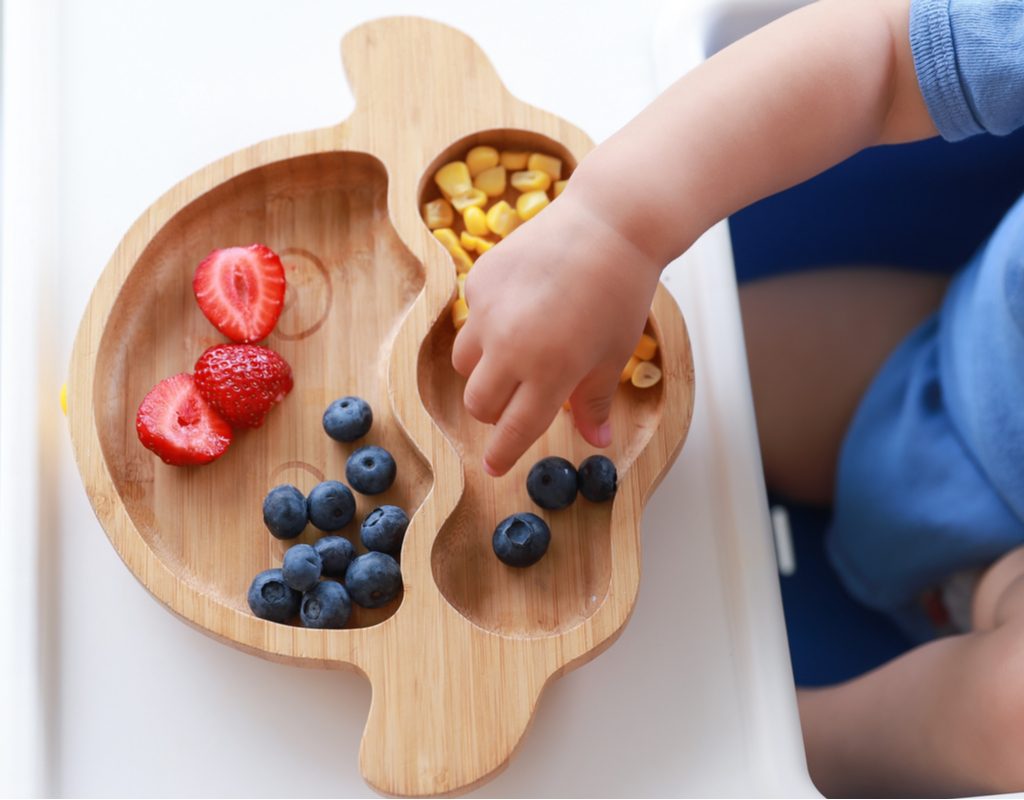You can almost see your toddler’s brain working as they figure new things out every day. They need the best brain food to fuel that learning. Eighty percent of a child’s brain develops by age three and 90% by age five, so feeding them nutrients that support brain development during the preschool years is critical. We’ve found eight of the most loved and highly recommended brain food for toddlers that you can serve to get them the best start possible.

Brain food for toddlers
Toddlers can be notoriously picky eaters but at the same time this is one of the most important times in their life to get proper nutrition. The eight foods below contain nutrients scientifically proven to improve cognitive function so you can feel good about what you’re putting on their plates.
Eggs
Eggs are an easy go-to meal for kids, a fan favorite, and also packed with brain-supporting nutrients like vitamin B12, protein, selenium, and choline.
Eating choline during the first 1,000 days of a child’s life can support brain development, protect against nerve cell damage, and improve cognitive functioning. Two eggs contain the full recommended daily value of choline for a child ages one to eight.
Salmon
Nutritionist Dr. Andrea Giancoli says that fatty fish like salmon are an “excellent source of the omega-3 fatty acids DHA and EPA — both essential for brain growth and function.” Other fish may also have brain-boosting qualities too but you have to look out for mercury in tuna and other issues with certain fish. Salmon is a toddler-safe fish recommended by the Food and Drug Administration for growing children. Read more in our guide about fish for toddlers.
Berries
Berries of all kinds help kids’ brain performance with compounds called anthocyanins. These are easy snacks on their own or put into a smoothie or popsicle. You can even add blueberries in a smiley face into pancakes to add a brain boost into a treat.
A 2015 study showed that children who drank a blueberry drink performed better on a word recall test than children who drank a control drink.
Leafy greens
Spinach and kale aren’t known for being toddler favorites, but if you can get them on their plate, their brain will be better for it. You can always hide it blended in a cheese sauce, a fruit smoothie, or inside nuggets, but it’s also a good idea to get them used to having them as a side vegetable instead of shying away from them. Green leafy vegetables contain vitamins E and K1, folate, flavonoids, iron, and carotenoids, all good for brain cognition.

Oranges
Oranges are packed with flavonoids and vitamin C, both important for brain health. Flavonoids increase blood flow to the brain which can increase cognitive function and vitamin C is essential for brain development. Just watch out for the proper way to prepare oranges for toddlers.
Yogurt
Mix fruit in with your toddler’s unsweetened yogurt instead of buying sweetened yogurt as a way to make it a healthy breakfast or snack. Yogurt has protein, iodine, zinc, vitamin B12, and selenium, which all help support brain development and function. The cool and soft texture can be a soothing option for teething toddlers as well.
Nuts
Nuts are a nutrient-dense snack and a nut butter like on a good old PBJ can have some serious brain benefits as long as it is not an overly processed peanut butter with lots of added sugar. Nuts like peanuts, almonds, walnuts, and pistachios contain brain-healthy nutrients like protein, iron, folate, zinc, and vitamin E. Put them in a trail mix or serve them on their own if your toddler is old enough to chew them thoroughly.
Oats
Dr. Sarah Krieger calls oats a nutritious “grain for the brain.” An easy and delicious breakfast, oats are full of vitamin E, potassium, zinc, and B vitamins for a growing brain. These can be added to a smoothie or muffins if your toddler isn’t into stand-alone oatmeal as a meal.
The best healthy food is a healthy food they’ll actually eat so if you have to sneak these in by hiding it inside blended chocolate every once in a while, so be it! But with popular and easy options like scrambled eggs, peanut butter, and blueberries, you shouldn’t have any problem getting brain food for your toddler daily.



